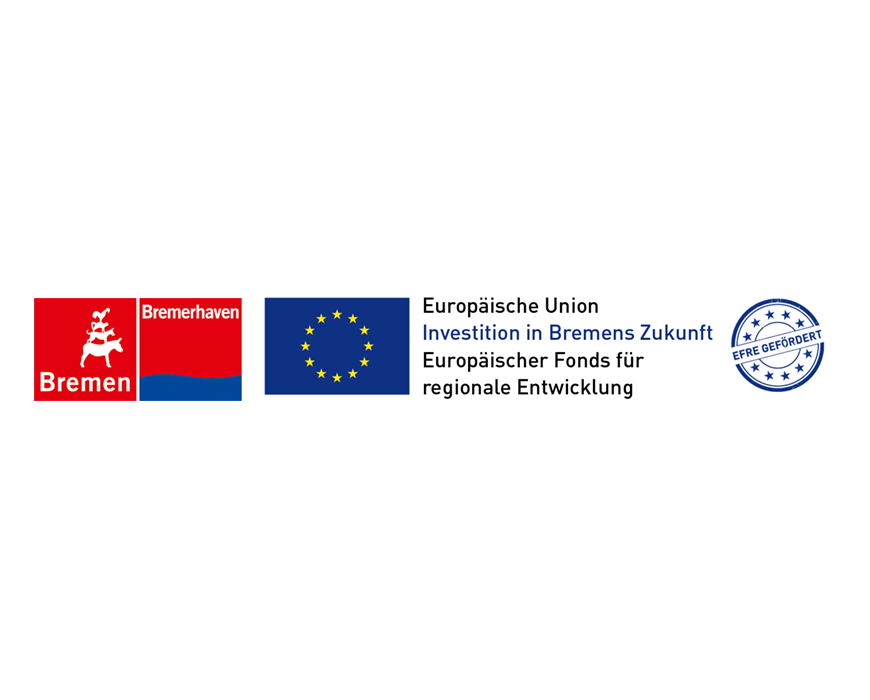| Funding: | ERDF – European Regional Development Fund, State of Bremen |
| Funding amount: | 15,782,226 EUR |
| Partners: | ttz Bremerhaven, University of Applied Sciences Bremerhaven, bis Bremerhaven |
| Duration: | 03/2020 – 09/2023 |
- This model project comprises the development of a hydrogen production unit and a value-added chain in Bremerhaven.
- The project will test applications in the logistics and transport sector as well as the food industry.
- The launch of this project also marks the start of preparations for the development of an electrolysis test field in the direct proximity of the Fraunhofer IWES Dynamic Nacelle Testing Laboratory (DyNaLab). This test field will have an initial electrolysis capacity of 2 MW, which should subsequently be expanded to up to 10 MW.
- Connection to one of the world’s most high-performance dynamic power grid emulators at the DyNaLab will allow examination of the impact of power supply fluctuations on the electrolyzers and determination of their electrical properties.
Hydrogen as a molecular energy store, which is converted back to energy through combustion, is regarded as a central component of the energy transition. It is hoped that production will also commence in Bremerhaven in the near future too. The renewable power for the hydrogen production via electrolysis (splitting of water into hydrogen and oxygen) is to be provided by an 8 MW wind turbine – as such, the hydrogen is produced in a CO2-neutral manner and is therefore “green”.
The research partners are pooling their expertise in order to test whether hydrogen can replace fossil fuels in certain processes for various applications at least partly in the future:
- ttz Bremerhaven is examining energy-intensive heating and cooling processes in the food industry.
- The University of Applied Sciences Bremerhaven hopes to make alternative fuels available for the maritime industry and shipping. To this end, the storage and distribution of hydrogen and electrical energy in the microgrid is of central importance.
- Fraunhofer IWES will examine whether a fuel cell is suitable for continuous data recording of a measuring buoy at sea.
By the end of 2021, various systems will have been developed on a laboratory scale for the individual application cases; these will then be further developed into pilot systems. The test results and operational experience should pave the way for larger-scale application in the future.
The project will also see establishment of a hydrogen hub in Bremerhaven. The sustainable commercial and industrial park Lune Delta, which is close to the electrolyzer test field, is to be supplied with CO2-neutral energy.
More information here (German only): https://wind-wasserstoff-bremerhaven.de/
